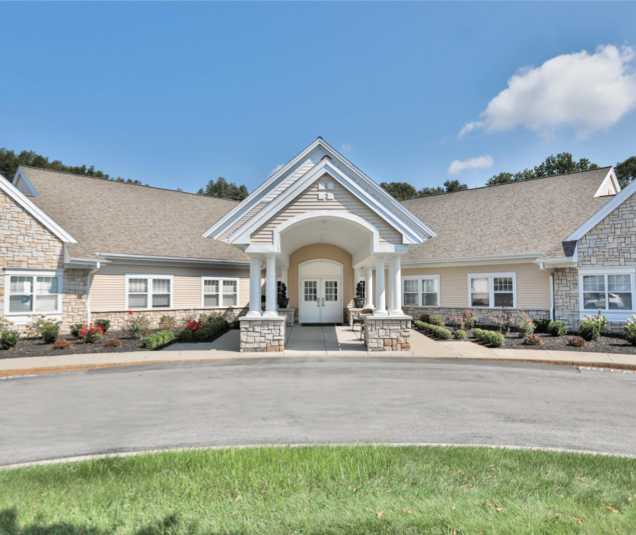
How Long Can You Live with Dementia?
Dementia can be complicated. This group of conditions can have a significant impact on a person’s life, eventually leading to the need for professional care. But it causes more than just cognitive symptoms—dementia can eventually begin damaging a person’s autonomous systems. So how long can you live with dementia?
After an Alzheimer’s diagnosis, most people can live comfortably for up to 8 years. However, this isn’t a set timeline; many people live 2 decades or more after receiving a diagnosis. It’s essential to remember that dementia is a complex condition that affects everybody differently—it’s crucial to follow the advice of healthcare professionals to preserve your loved one’s health, dignity, and quality of life.
What Is Dementia?
Dementia isn’t just a single condition. Instead, it’s a group of complex disorders that cause neurodegeneration—damage to the cells throughout different areas of the brain. This umbrella term encompasses a wide range of conditions, such as:
- Alzheimer’s disease, the most common type of dementia
- Vascular dementia, caused by changes in blood flow to the brain
- Lewy body dementia, caused by a buildup of certain proteins in the brain
- Mixed dementia, where various symptoms develop as a mix of other types of dementia
No matter what type of dementia a person experiences, the underlying result is always the same—brain cells are damaged and die off, leading to a significant progressive decline in a person’s cognitive capabilities.
The Symptoms of Dementia
With dementia, the early signs are often subtle, and can easily be mistaken for age-related forgetfulness or confusion. However, as the condition progresses and more brain cells are damaged, these symptoms become more pronounced.
Early Signs of Dementia
If you’re worried about a loved one’s cognitive abilities, keep an eye out for the following:
- Memory loss that disrupts daily life
- Difficulty in planning and solving problems
- Struggling with familiar tasks
- Confusion with time or place
- Language problems
- Withdrawal from work or social activities
- Changes in mood or personality
If you notice any of these signs, visit a healthcare professional for a proper diagnosis.
Dementia Complications in Later Stages
In later stages, more and more brain cells become damaged. This can eventually lead to:
- Severe memory loss
- Inability to recognize family members
- Difficulty speaking or understanding communication
- Challenges with walking and mobility
- Increased risk of infections and other illnesses
- Complete dependence on others for basic care
At this stage, professional care is essential to help your loved one maintain their quality of life.
What to Do After a Dementia Diagnosis
If a loved one receives a dementia diagnosis, it can be a confusing time—especially when trying to plan ahead for the future. Suddenly becoming the caretaker for a loved one can be overwhelming at first, so what do you do?
Here are steps to consider after a diagnosis is delivered:
- Discuss care preferences and living arrangements with the diagnosed individual.
- Explore local support groups and resources for caregivers.
- Prepare legal and financial documents, including power of attorney and advanced directives.
- Begin exploring memory care options and getting on waitlists if appropriate.
The decision to move a loved one to memory care is crucial. These are specialized types of senior living communities designed specifically to support older adults with dementia. In memory care, your loved one can receive personalized care designed to maintain their cognitive abilities and their dignity.
Meanwhile, it can help to educate yourself further about dementia itself. This way, you can learn how to properly support your loved one through this time.
The Key Stages of Dementia
As dementia advances, it moves through distinct stages. While the specific timeline may vary from person to person, these stages are fairly similar in how they affect your loved one. Usually, a person receiving an Alzheimer’s diagnosis can live comfortably between 4-8 years, though many people can live up to 20 years after diagnosis.
Early-Stage Dementia
In early-stage dementia, your loved one will be experiencing no, or mild, symptoms. At this stage, the brain cells are becoming damaged and will begin causing small amounts of cognitive decline.
While your loved one will likely be able to function independently, they may need some additional support. They may occasionally need help with:
- Remembering appointments or social engagements
- Managing finances, like paying bills on time
- Completing complex tasks, such as planning a meal or dressing appropriately for the weather
- Recognizing the need for assistance in certain areas, yet still maintaining a degree of autonomy
- Adapting to new routines or changes in their environment
During this time, try to establish set routines for your loved one. Encourage them to lead a healthy lifestyle, as diet and exercise can play a crucial role in maintaining cognitive abilities. Try recommending some cognitive exercises, like memory games or puzzles, to keep your loved one’s brain functioning strong.
Intermediate-Stage Dementia
At intermediate or middle-stage dementia, your loved one’s symptoms will begin to worsen. They may begin to:
- Be more forgetful, becoming occasionally confused about time and place
- Lose important objects or documents
- Become unable to manage their own household
- Require daily supervision
- Exhibit personality or behavioral changes
At this stage, professional care can play a crucial role in preserving your loved one’s cognitive abilities. You should be reaching out to memory care communities nearby to set up tours and work towards finding your loved one a future home.
Late-Stage Dementia
In late-stage dementia, older adults living with dementia are much more vulnerable. They’ll likely require round-the-clock care and supervision to maintain their quality of life.
Late-stage dementia can be complicated, as the brain may begin to shut down essential functions like swallowing or walking. In addition, older adults with late-stage dementia may also experience:
- Severe memory loss
- Difficulty recognizing loved ones
- Trouble communicating
- Limited mobility or bedridden state
At this stage, it’s critical to ensure your loved one receives high-quality care from experienced professionals who understand this unique situation.

Professional Memory Care in Clifton Park
If you have a loved one exhibiting signs of cognitive decline, reach out to our team at Peregrine Senior Living at Clifton Park. Our team can work closely with your family to find your loved one the right community. Schedule a tour with us today, and let’s work together to get your loved one the care they need for a higher quality of life.











Pet therapy and a friendly game of bowling yesterday! 🐶🎳 ... See MoreSee Less
0 CommentsComment on Facebook
... See MoreSee Less
This content isn't available right now
When this happens, it's usually because the owner only shared it with a small group of people, changed who can see it or it's been deleted.0 CommentsComment on Facebook
Dining at our community is about more than what’s on the plate—it’s about connection, community, and the joy of gathering together.
Our talented culinary team crafts meals that are both delicious and nutritious, offering flavors that comfort and inspire.
From themed dinners to chef demonstrations, each meal becomes an opportunity to savor the moment and celebrate life’s simple pleasures. 🍴
peregrinecliftonpark.com/ ... See MoreSee Less
0 CommentsComment on Facebook
Cheesecake Factory for lunch 🍰🍝 ... See MoreSee Less
0 CommentsComment on Facebook
Carmen and Joe joined us live again for another monthly Peregrine Birthday Party! ... See MoreSee Less
0 CommentsComment on Facebook
The March newsletter is here!
And monthly dinners are back starting with a bang thanks to Home of the Good Shepherd and DJ Mark Hersh. We will have a festive breakfast for St. Patrick's Day with Peregrine Senior Living at Clifton Park, and Saratoga County Department of Aging and Youth Services brings us new programs like Boxing Fitness and an additional Chair Yoga class!
Find the newsletter here: cliftonparkny.gov/document-center/clifton-park-senior-community-center/2026-newsletters/5845-marc...
Town of Clifton Park ... See MoreSee Less
0 CommentsComment on Facebook
Today we celebrate the caregivers—those whose quiet strength and unwavering compassion bring comfort to so many.
We see the difference caregivers make every day: holding a hand, sharing a smile, or offering reassurance when it’s needed most. 💕
Your dedication reminds us that true care goes beyond tasks—it’s an act of love, patience, and humanity.
Thank you for all you do to make the world a more compassionate place.
peregrinecliftonpark.com/ ... See MoreSee Less
0 CommentsComment on Facebook